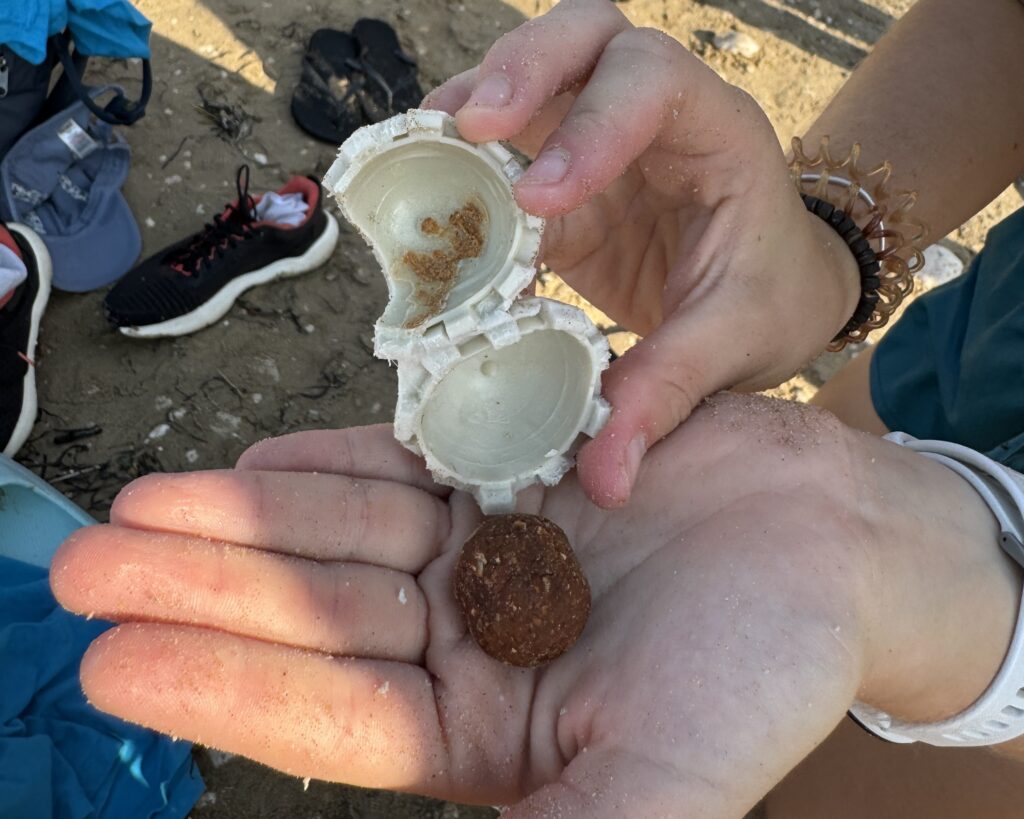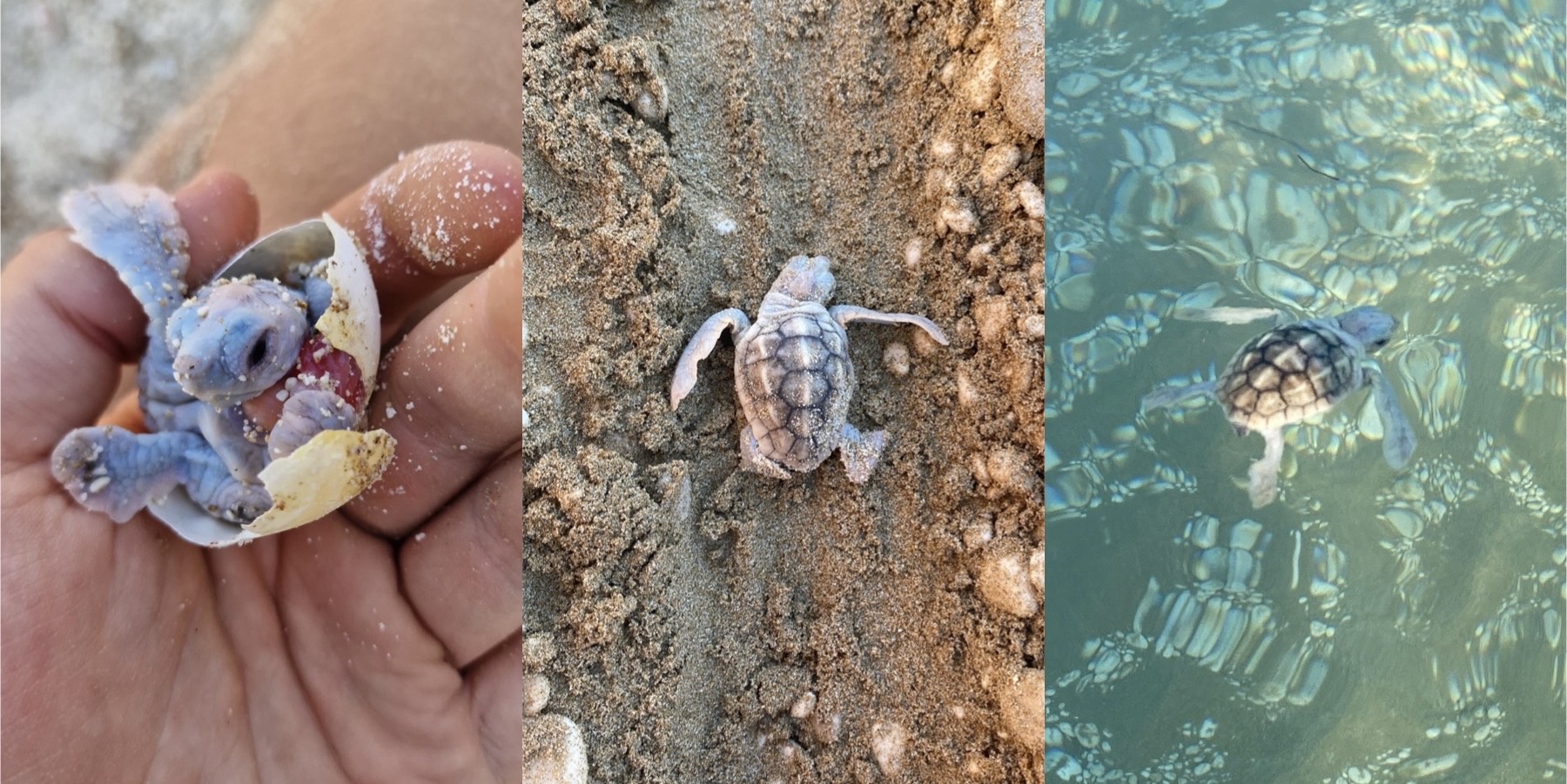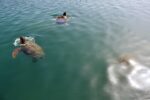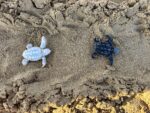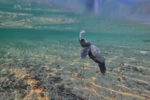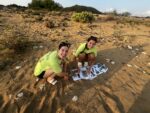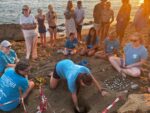Our Latest News- August 25, 2024
Skala Field Station
Last Thursday we welcomed our last group of August, along with a new member of our core team, Isabelle. After a very successful training day it was time for their first shift day. On their first snorkelling shift they recorded a patch of Posidonia on sand. This is particularly exciting, as since the beginning of the project on the 30th of May, only 0.06% of our pictures got classified as patches on sand. This is very consistent with last year’s data, as it was also 0.06%. They have also spotted rays as well as a sea snake during one of their snorkel sessions in their free time.
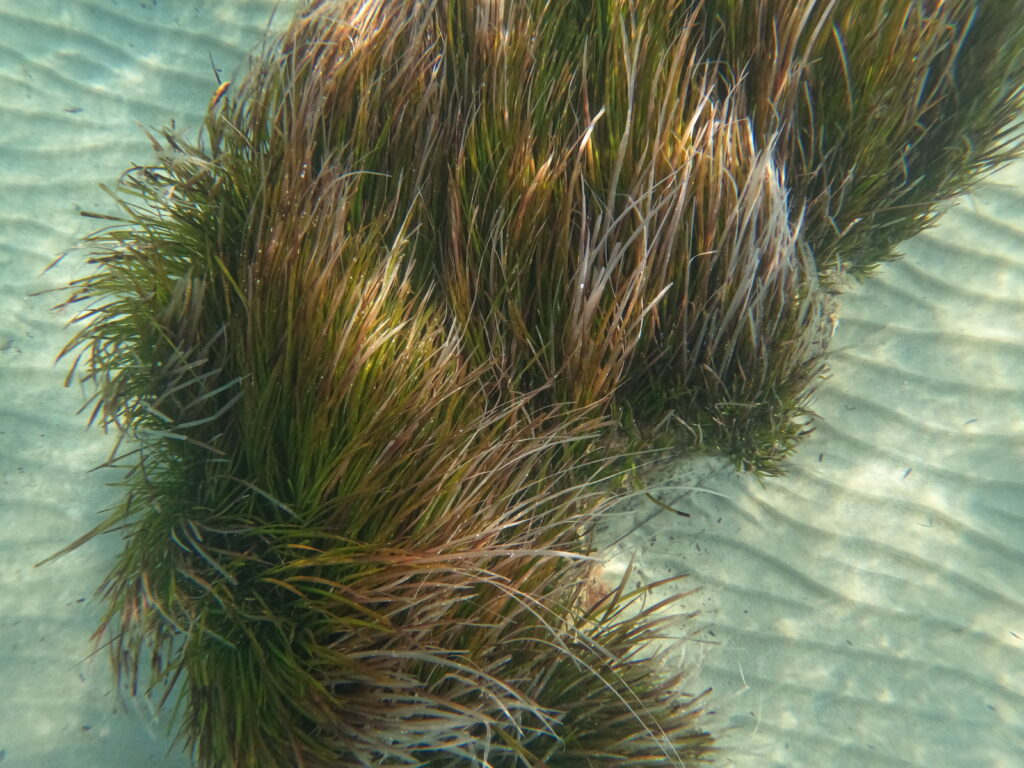
A change of temperature brought our first storm since the beginning of the season. We have been documenting the changes of the beach profile since then, and have already observed a lot of changes, but hopefully we will be able to analyse how this storm has impacted our beaches with the data of the future beach slope surveys. The figure shows a cross section of the beach profile at Mounda. Showing us that whilst the dune system is stable, the sand in front of the dune (closer to the sea) is being eroded over time.
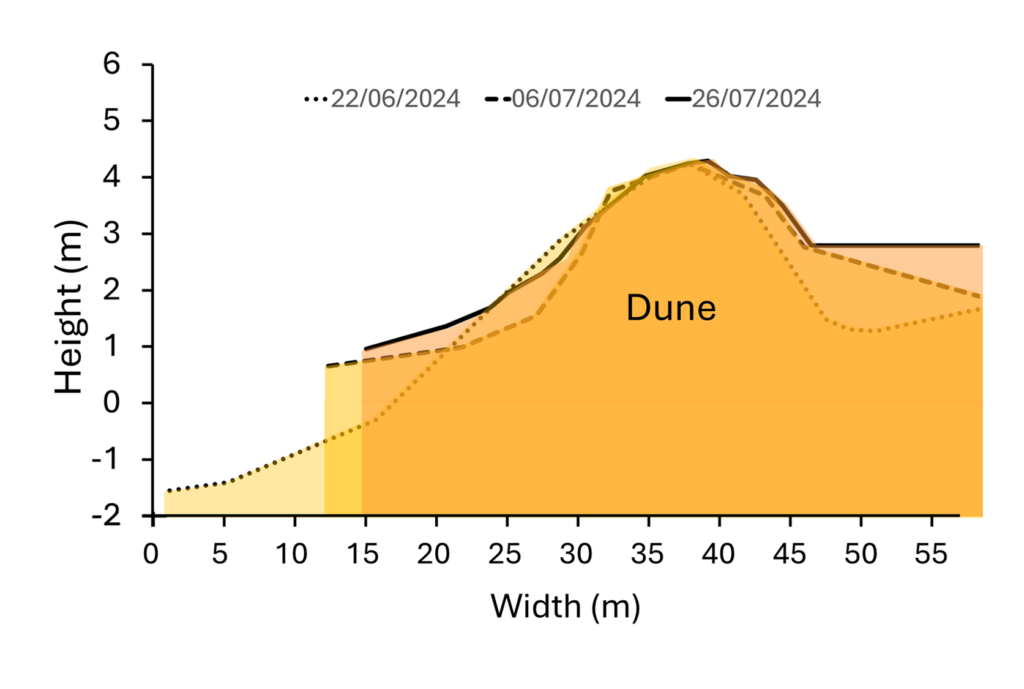
During our early morning shifts we were able to noticed the sun rising over the sea, instead of over the mainland, as it has for the past couple of months. Volunteers were also lucky enough to witness a meteor shower during their light pollution shift.
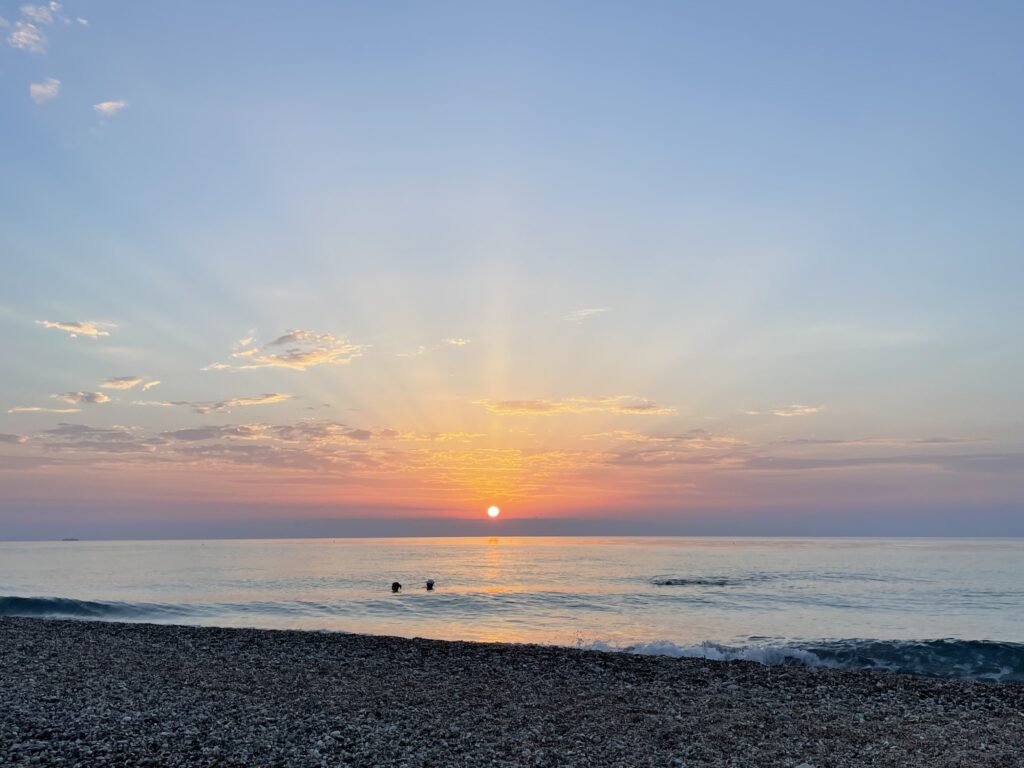
Argostoli Field Station
We’ve had a busy two weeks at Argostoli field station with hatchlings left, right and centre! In the past 2 weeks we have had a total of over 1000 hatchlings helped to sea during hatchling rescue night shifts and have completed 60 inventories on nests that have been hatching for 3 days. We also had 3 emergency relocations due to severe weather from the storm, our team rushed down to the beaches and were able to relocate the nests that had become inundated overnight due to high waves and check any further nests at risk. Our volunteers have loved assisting the little hatchlings on their journey to the sea and enjoyed engaging with the public and sharing information about the work we do. Only approximately 1 in 1000 hatchlings will make it to adulthood so we must aid as many as possible to increase their chances of survival. All of our nests on Avithos, Ammes and Ai Chelis beaches have now finished hatching and have been inventoried! We are still monitoring 67 nests across our beaches in the Argostoli area so there is still lots of work to do.
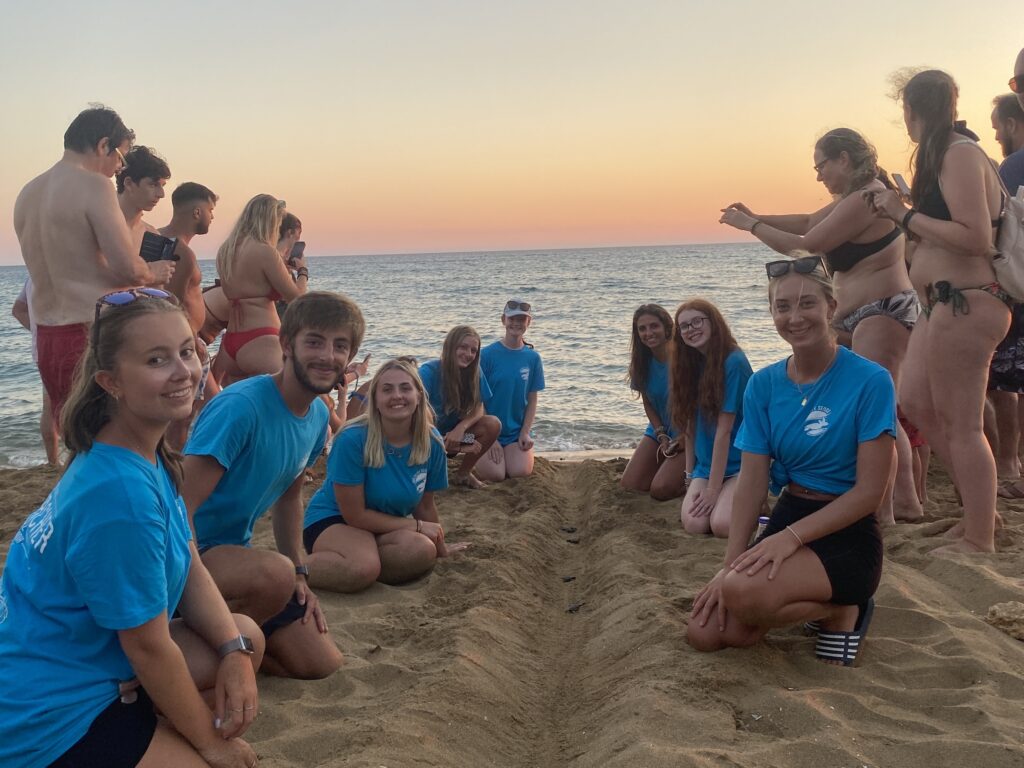
We have also had a successful turtle rescue within the last two weeks. One of our volunteers, using their drone, noticed that Rufus wasn’t using his front right flipper. Upon closer investigation, we observed swelling and lacerations near his shoulder, indications of a fishing line entanglement. Rufus was safely captured, and we discovered a line wrapped around his flipper restricting its movement. Fortunately, we were able to remove the fishing line, provide first-aid, and release him back into the harbour. Spotting and detecting a fishing line entanglement early on is essential in preventing it from causing more serious injuries!
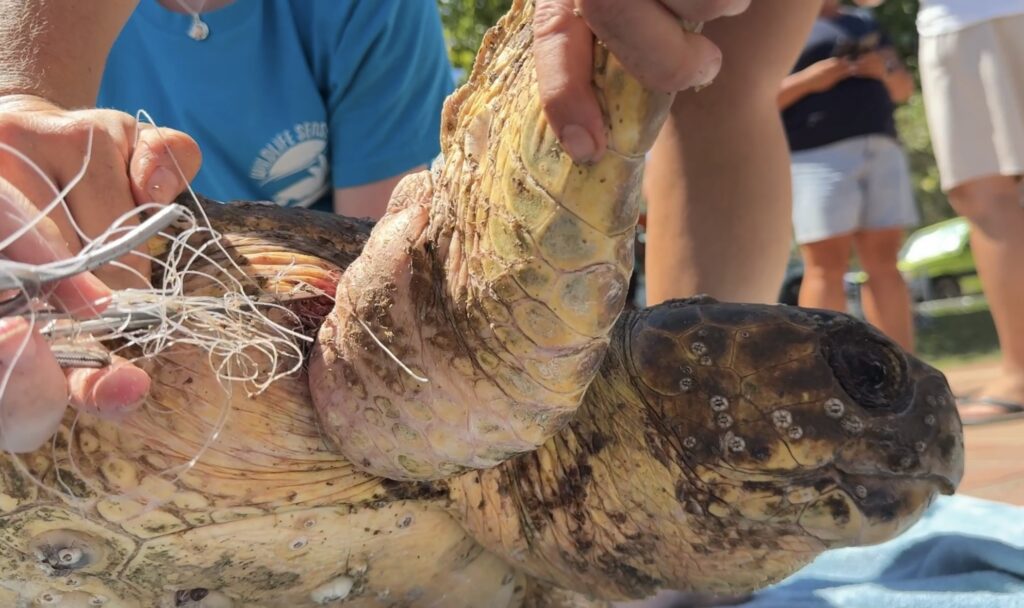
Our volunteers (and core team!) have been enjoying activity nights. They have participated this week in scavenger hunts, quiz nights and movie nights! We are also looking forward to Souvlaki night and Henna night this week! They have also been exploring the island in their well-deserved time off with a group of lucky volunteers spotting a green turtle whilst snorkelling.
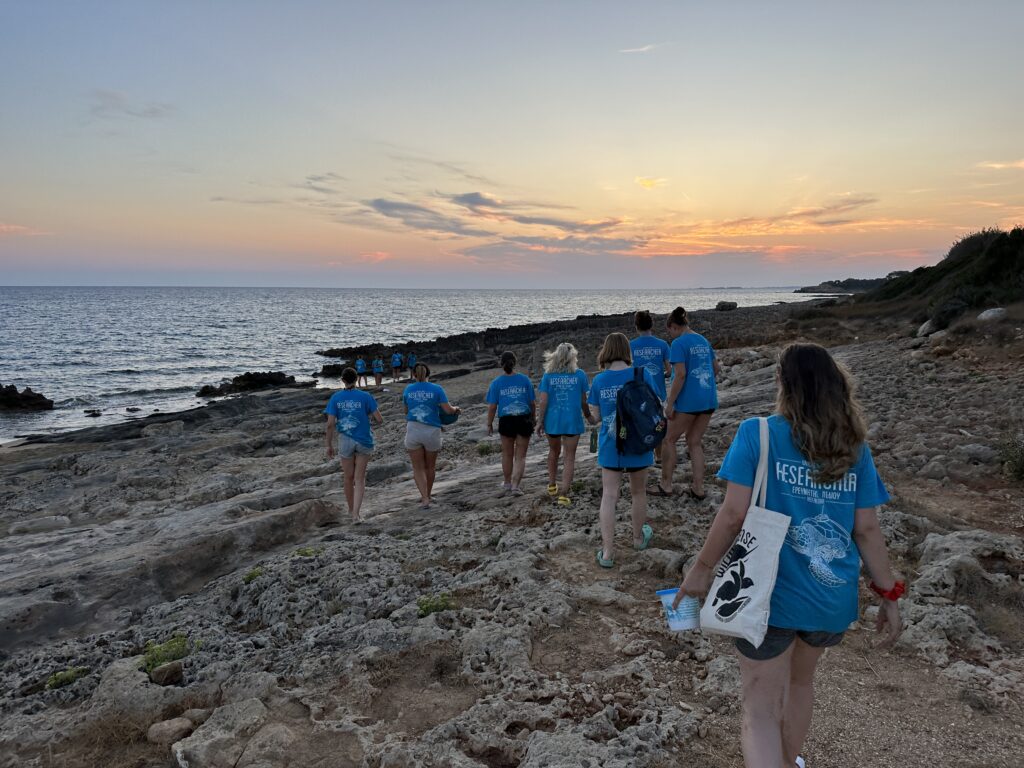
Lixouri Field Station
Hatching season is in full swing in Lixouri! In the past two weeks, 36 nests have started hatching and 31 nests have reached 45 days of incubation, so the team have been very busy during morning survey shifts, with plenty of hatchling tracks to count and record.
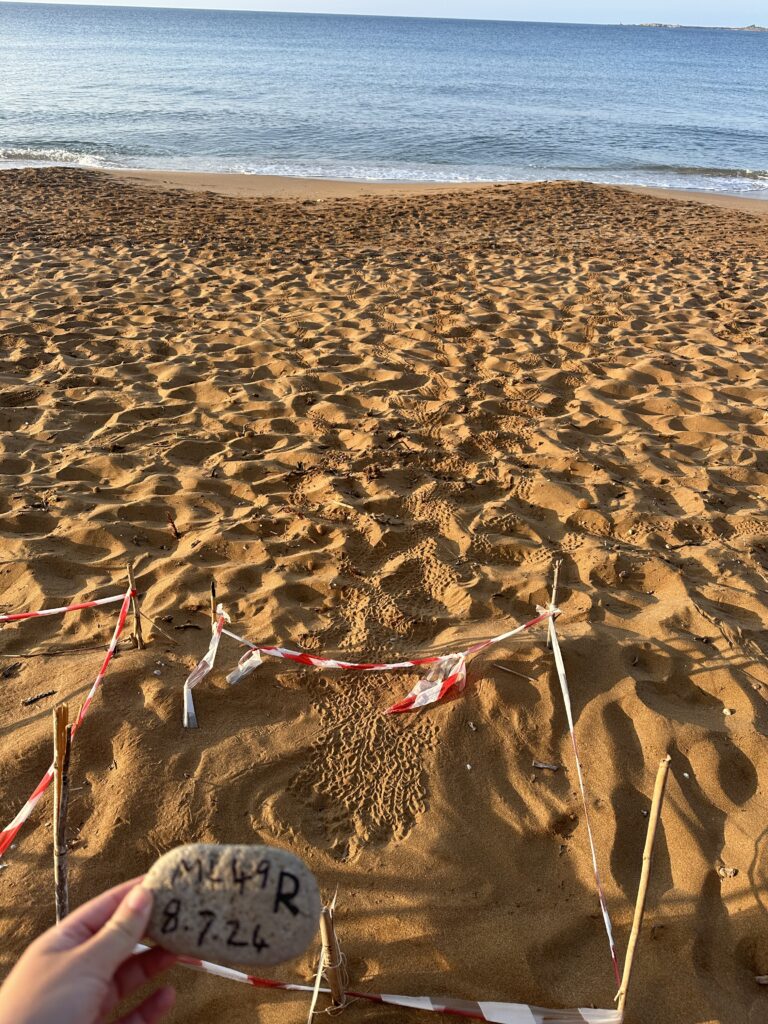
As a result of all of this hatching action, there have been inventories happening left, right, and centre! 62 inventories have been carried out over the past fortnight finishing 39 nests, classifying 3557 eggs and helping over 800 hatchlings safely make it to sea. There are now 60 nests remaining across the Lixouri survey beaches, and we look forward to helping more hatchlings from these nests in the coming weeks.
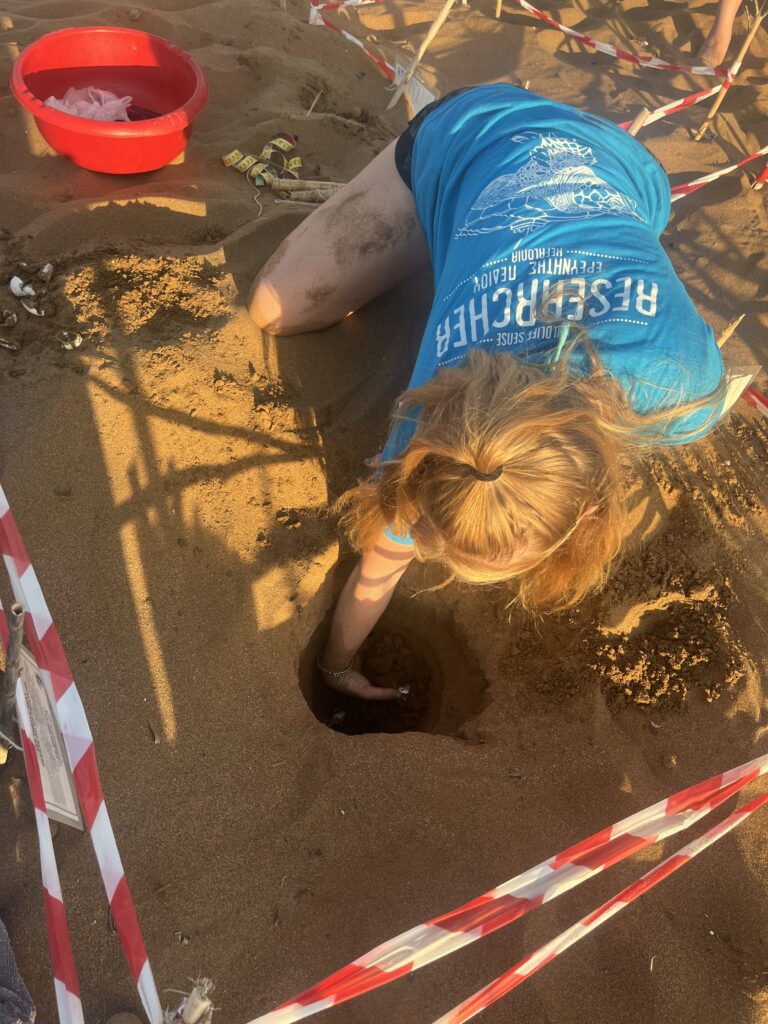
Hatchling rescue shifts have also been busy, with 96 hatchlings from 6 nests protected from disturbance through light pollution during this period.
Although the nesting season is almost over, four emergences and one new nest have been recorded since 12 August! This has brought our total nest count for the year to 171, a record-breaking figure for the Lixouri survey areas. We are hugely grateful to the dedicated teams of volunteers who have worked hard to ensure that all of our nests are monitored and protected during this extremely busy season.
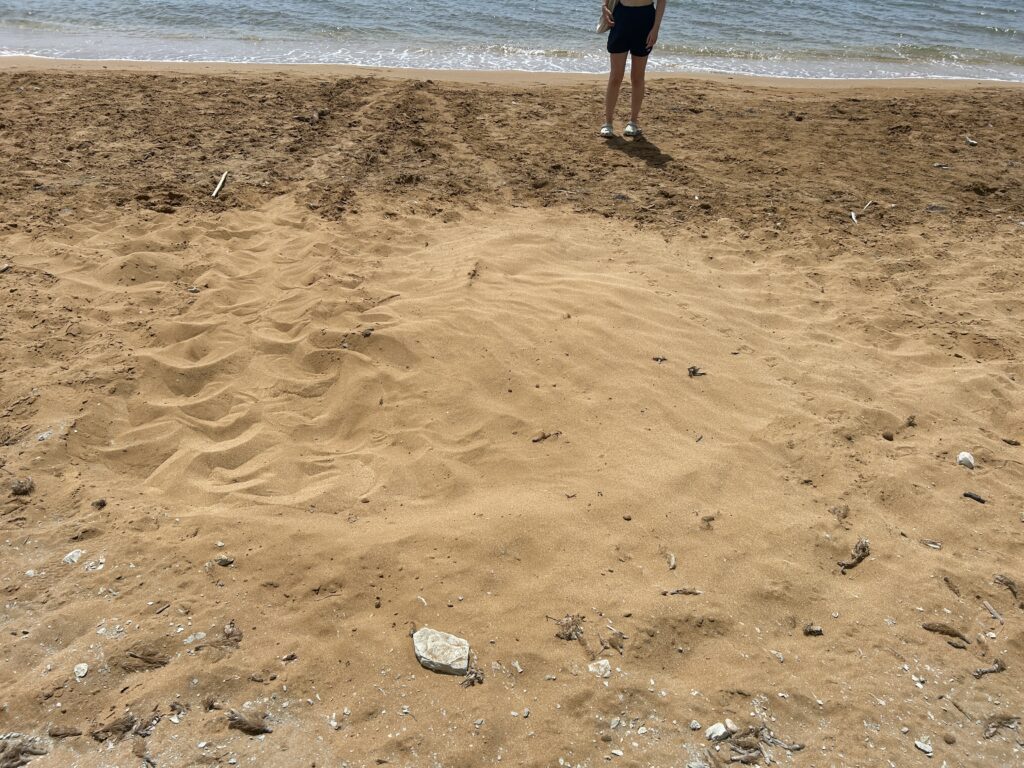
Svoronata Field Station
After our successful “nest watch,” we were invited back for week 2! Our volunteers manned “Fort Ammes,” helping 29 hatchlings to sea! Our work from our light pollution surveys and beach cleans on this beach has allowed the hatchling’s successful journey to begin in clean waters, towards the natural light of the moon.
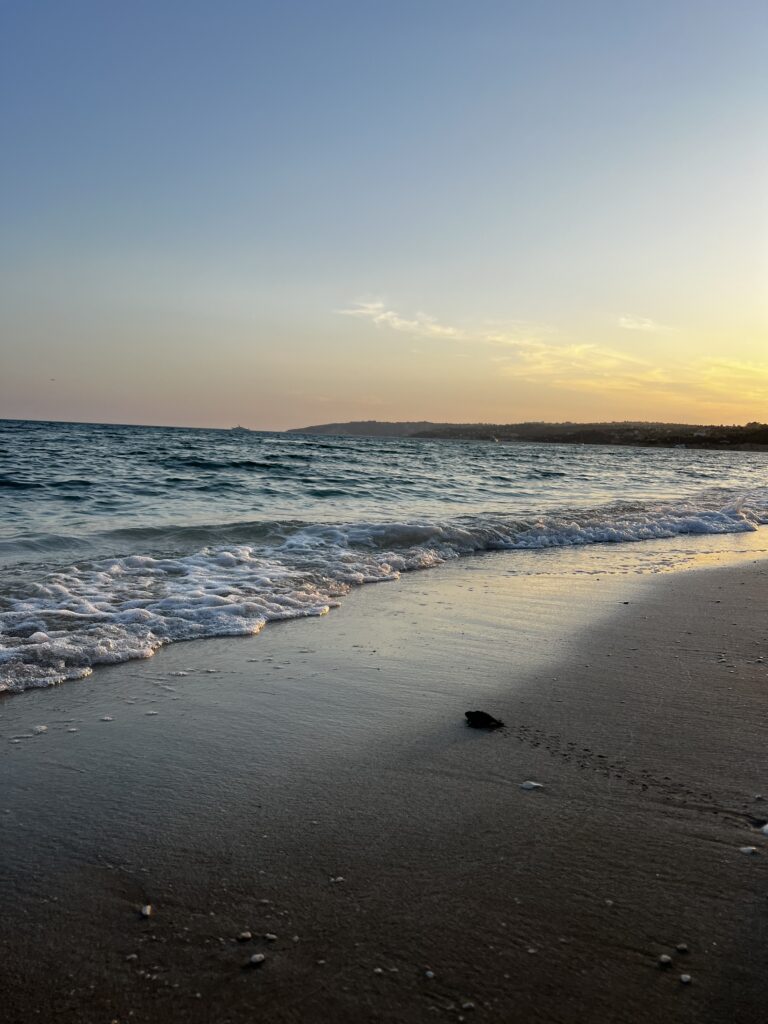
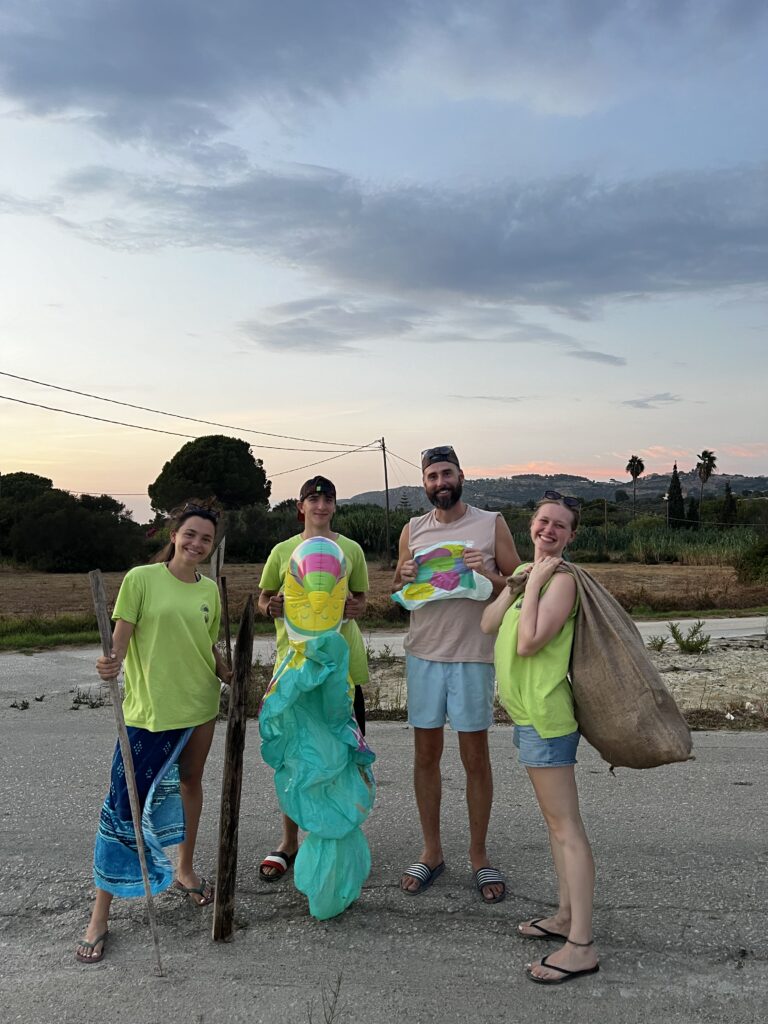
We have ventured to Lourdas in the past week to conduct beach profiles and map the size of the beach. This data corresponds to our sand dune surveys, as the beaches that aren’t protected by our dunes suffer greatly and have shrunk in recent years. While watching inventories on Kanali Beach, we witnessed other ways that the dunes are sustained, with remains from the nests feeding into the ecosystem, allowing it to thrive!
Our “star swimmers,” Lightning Lauren and Persistent Poppy, completed our fastest snorkel: 31 minutes! They saw lots and lots of flourishing Posodonia. The core teams’ snorkelling abilities were also tested as Orla, Grace, and Jess swam “Baha,” the hatchling, out to sea.
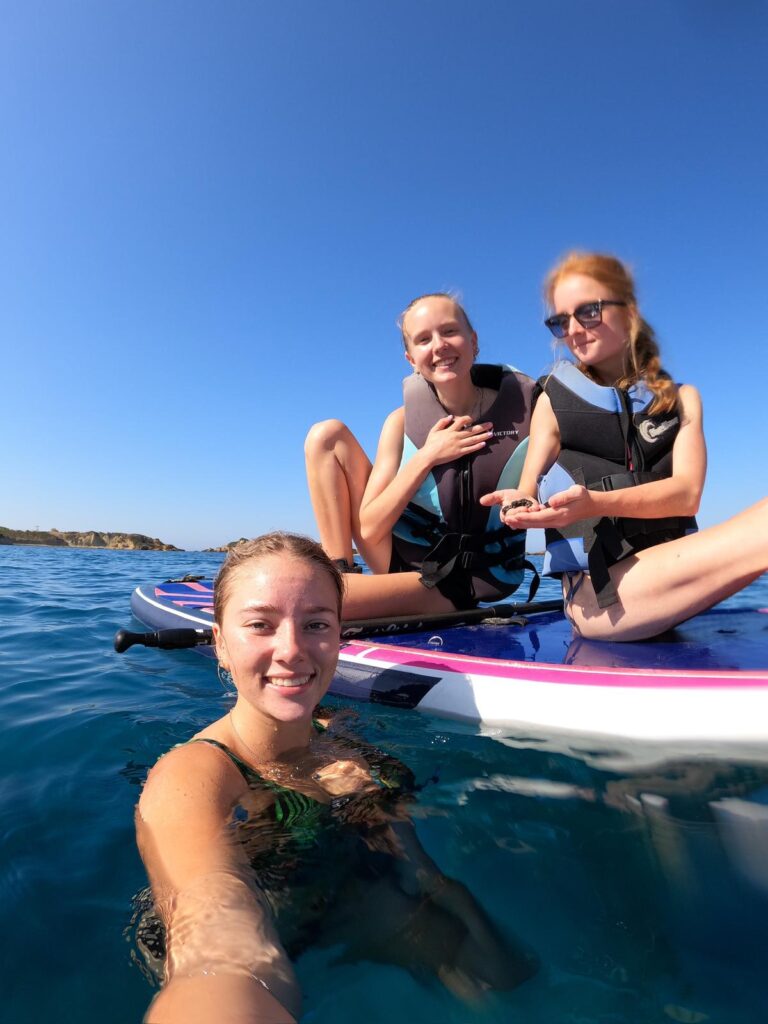
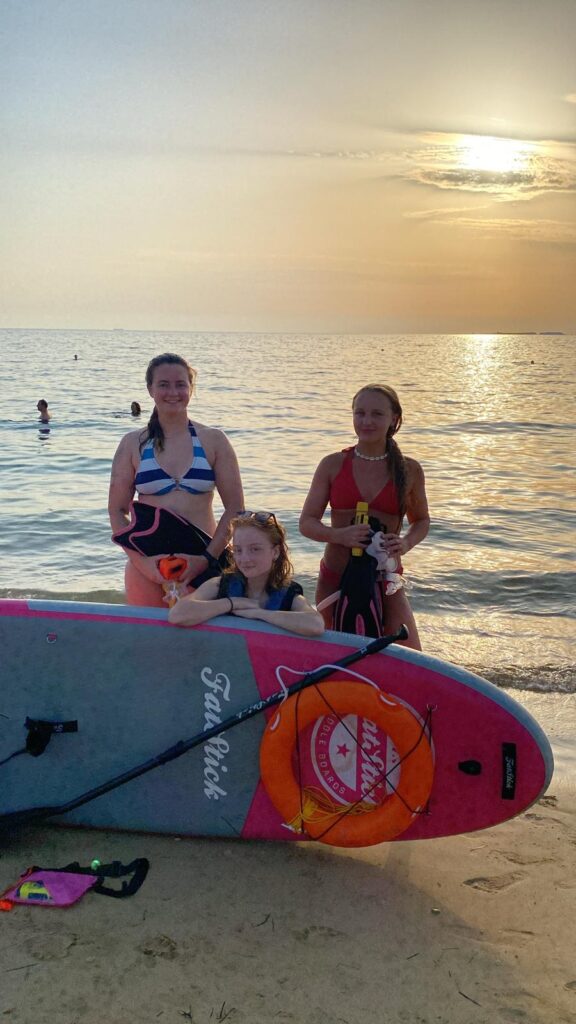
The “Mines mission” to uncover the record rubbish discovery was very, very successful with the team’s prize removal being a flamingo lilo!
This week, we welcome our new Field Leader, Harry (aka, the “Scops-Owl Ninja”). Harry brought the team to Lixouri, spotting our “bird of the week”, the European Bee-eater! Our other field leader, Grace, celebrated her 21st birthday this week! She marked this milestone with the luxury meal of Marmite/beans on toast (absolute classic scran).
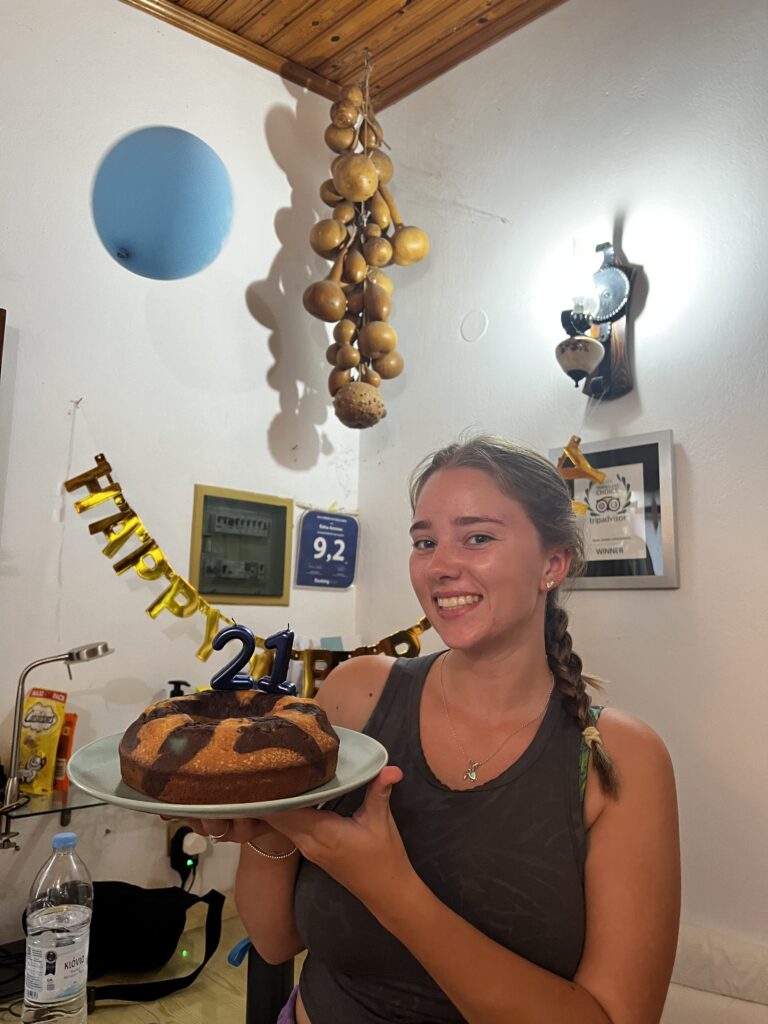
For our penultimate activity night, Harry brought us the quiz of the century: the legendary “ROCKBUSTERS”! Reports have emerged that it was “life-changing”. The rumblings of “round-2” have already begun!…
The Education Program
Our family groups and under-18 groups have had an incredibly busy and exciting time with hatchlings over the past two weeks, with one group alone helping 258 hatchlings to sea! With the last adult female track spotted on August 11th, our mornings have been slightly less chaotic, sometimes allowing us to finish earlier and complete necessary inventories at the end of our morning surveys.
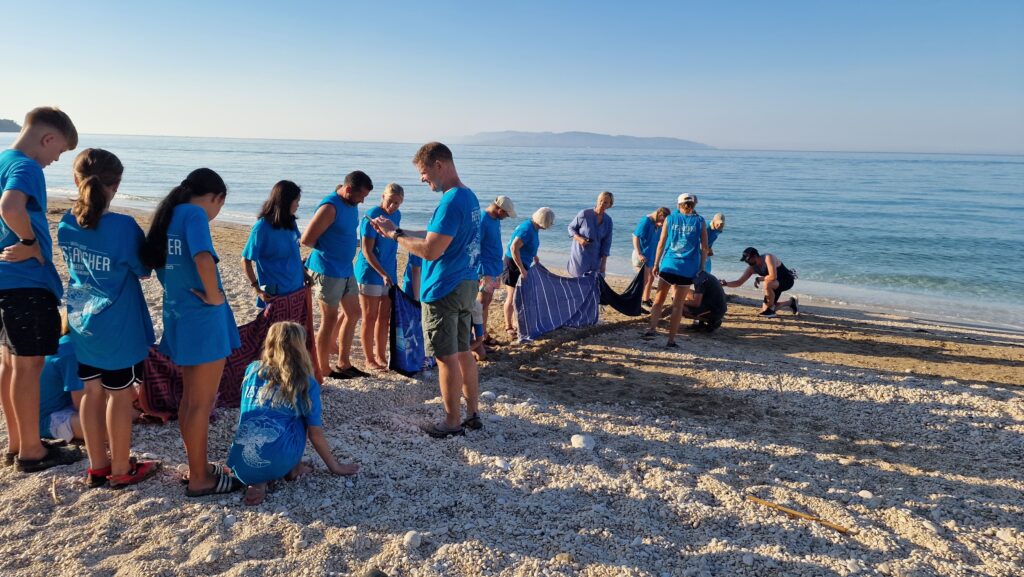
One particular morning was full of surprises. It was already busy with hatchling tracks and reburied hatchlings to check on, with two inventories being completed simultaneously. In total, over 100 hatchlings were helped to sea! Among the hatchlings we checked on was one leucistic hatchling! Leucism is a condition characterised by reduced pigmentation. We usually don’t expect leucistic hatchlings to survive, so it was an amazing surprise to uncover a lively one, a first for many of us! Although noticeably weaker, this hatchling not only survived the night and absorbed all its yolk but also stretched itself out and was able to swim when placed in the sea. It was a truly special experience for our core team members who helped it swim out to sea and for the families who got to witness this unique hatchling take its first few breaths in the water.
As beautiful as this hatchling was, the unfortunate reality is that its chances of survival in nature are very slim. Camouflage is crucial for all species, especially in their juvenile stage. Animals with leucism lack the natural patterns that help them blend in with their surroundings, making them more vulnerable to predators.
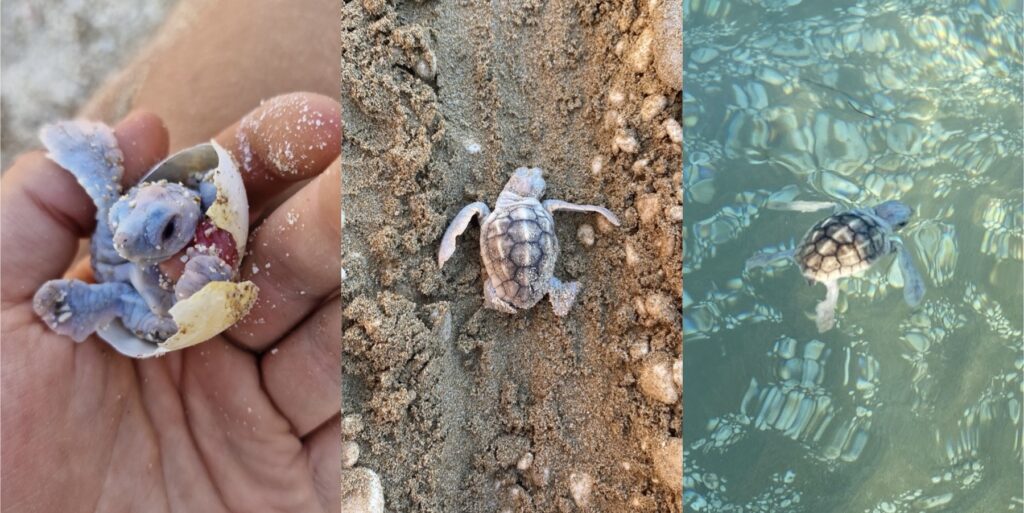
Our nighttime nest monitoring has also been very exciting with lightning storms and lots of hatchlings helped to sea from Megali Ammos, Eglina and Avithos beach! Our groups thrived despite the lack of sleep, waking up for the majority of the checks throughout the night with one girl describing the experience as feeling like Christmas morning, as she was so excited at the thought of maybe seeing hatchlings inside our boxed nests!
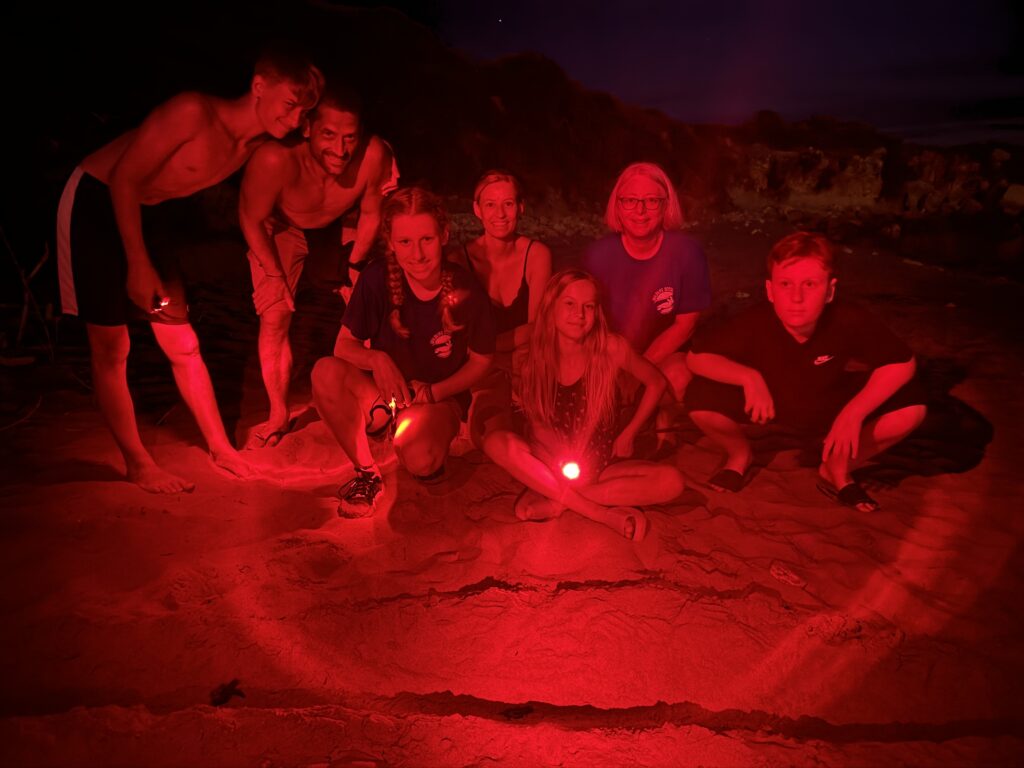
Lourdas Field Station
The Lourdas area continues to surprise us with two more “Found By Hatching” (FBH) nests discovered on Lourdas and Kanali, bringing our total to 76 nests! While we haven’t seen any adult female tracks since 11th August, it doesn’t mean the nesting season is over, you never know what the turtles have in store! We’ve fully inventoried 37 nests, leaving 35 protected on Lourdas beaches, half our initial count.
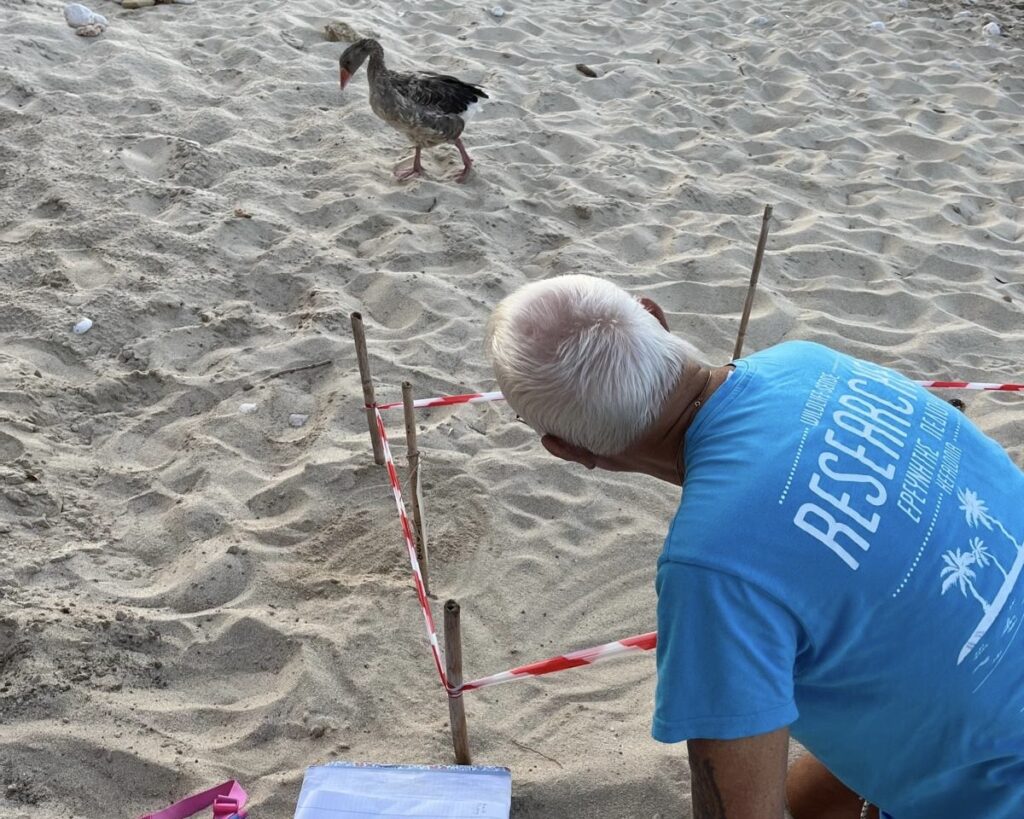
We’ve had some stormy days with heavy rain, high waves, and lightning, making for some wet inventories. Fortunately, all of our nests were above the high water mark and remain unaffected! One nest got washed over by the waves the morning after, But luckily, it was cleared with a moisture check!
On 16th August we got a call about a dead turtle washed up on Lourdas beach. This turtle was an untagged female, though we can’t confirm, she might have been one of our nesting females. The cause of death is unknown but she had a wound on her front left flipper which looked as if it could have been caused by an entanglement from a fishing line or net which may have contributed to her death.
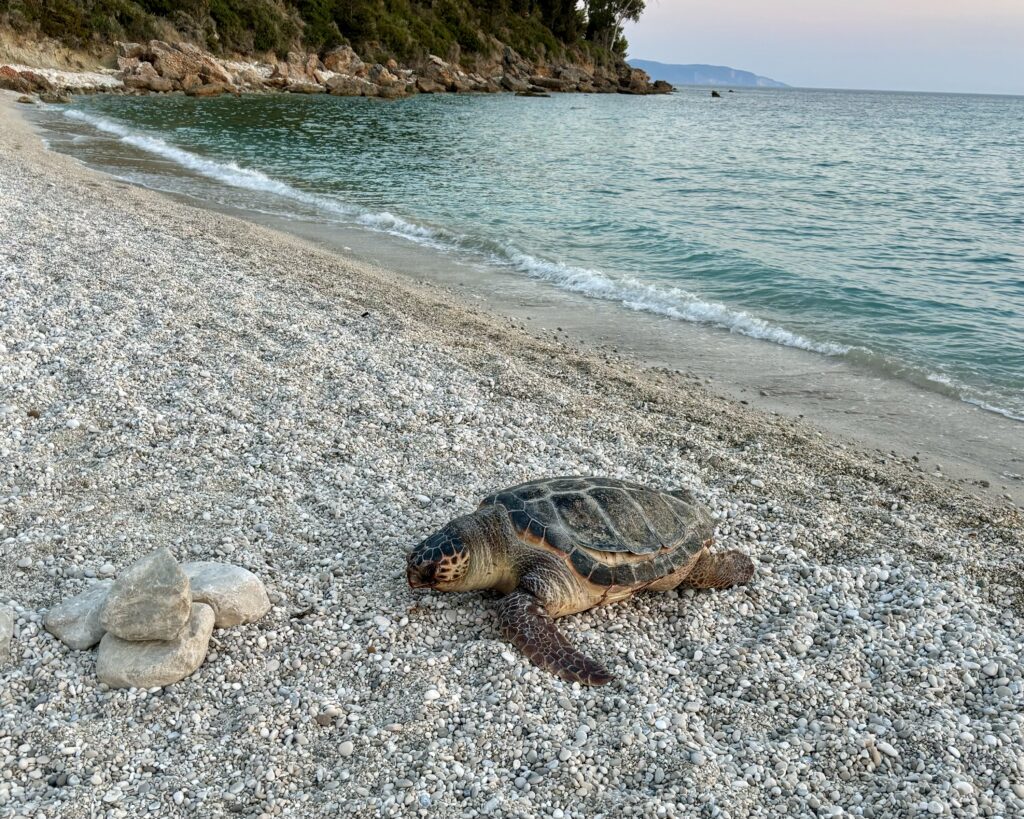
At the end of a busy morning, we made a worrying discovery, a washed-up object resembling a turtle egg near our hatchery. It was the same size as a turtle egg, covered with sand similar to a natural egg and had an uneven, textured surface which could be similar to how an eggshell might absorb seawater and calcify, it also had something inside. We sat carefully opening up the very hard “egg”, concerned about what we might find inside! We eventually broke through the “shell” to see a printed number 12 written on the inside of our “egg”… turns out it was just a very egg-looking rubber ball! Much to our relief!
